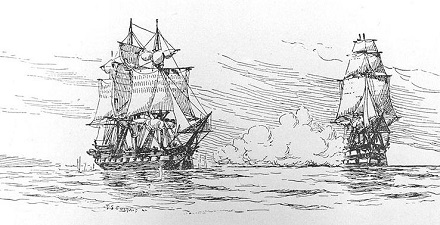Jackson’s Oxford Journal, April 1, 1809:
ASSIZES. — At Surry [sic] assizes, the following capital convicts received sentence of death: — J.A. Davison, J. Mason, J. Wood, and S. Hilton, for burglary; W. Leech, for highway robbery; J. Bartlet, [sic] for an unnatural offence; T. Hall, for extorting money under a threat of charging J. Clarke with an unnatural offence; H. Edwards, for shooting at W. Smith; J. Stenning, for forging a note; C. March, for cattle-stealing; S. Turner, for privately stealing; and Mary Ann Ellis, J. Hopkins, and J. Cobb, for stealing in dwelling-house. The Judges reprieved all except Bartlett, Edwards, Mason, and Wood.
Robert Skinner was indicted for attempting to ravish Mary Ann Hill, on the 16th of February last, at Wandsworth. The prosecutrix, who stated herself to be only 16 years of age, deposed that her father was a market-gardener at Wandsworth, and the prisoner worked in his service. On the 16th of February last they were at work together in a shed. He was binding coleworts, and she was trimming them.
After he had finished, he came to where she was sitting and threw her down. He was, however, interrupted by the coming of a cart, or she believed he would then have committed the offence charged. On cross-examination, she said her father had a cottage in his garden in Garret-lane, and she, her sister, and another girl slept there alone. On the 14th of January the prisoner was there in the evening; they gave him some beef-steaks for his supper, and he would not go home. She gave him the mattress to lie upon without side her chamber door. — In the night she heard a noise, and got up to see what it was; they were both naked. She did not tell her father of this. A few nights afterwards they had him to supper again, and got him some sausages; he would stay all that night, and she then let him lie in the same bed, but she did not let him lie next to her. The Learned Judge here interrupted, and observed it was ridiculous to talk of any attempt at a rape after this. The prisoner was of course acquitted.
Jackson’s Oxford Journal, April 8, 1809:
EXECUTION. — James Bartlett, for an unnatural crime; Henry Edwards, for highway robbery; and John Biggs and Samuel Wood, for burglary, were executed yesterday morning, [April 4, 1809] at the usual hour, on the top of the New Prison, Horsemonger-lane, in pursuance of their sentence. The crowd assembled on the melancholy occasion was excessive. The unfortunate men met their fate with great fortitude, and died acknowledging the justice of their punishment. Biggs sarcastically observed to the Executioneer, [sic] when he was pinioning him in the usual way — “I wish you had a better office.”* — He with the rest died extremely penitent. A hearse conveyed the body of Bartlett to Limehouse, where he is to be interred. — He is stated to have conveyed before his trial upwards of 1500l. to his daughters.
* The hangman so busted upon was William Brunskill, who already had near a quarter-century in his poor office by that time. It’s a bit hard to tell from the printed account, but since Brunskill had some notable ten-thumbed hangings to his credit — like that of Joseph Wall seven years before — the “better office” remark might have been a Monmouth-esque professional rebuke.
On this day..
- 2005: Six surprised Somalis
- 1913: A day in the death penalty around the U.S.
- 1902: Clinton Dotson, bad son
- 1975: Pierre Galopin, hostage of Hissene Habre
- 1895: William Lake
- 1884: Henry Rose
- 1205 or 1206: Jamukha, Genghis Khan's brother and rival
- 1962: James Hanratty, the killer all along
- 1994: Richard Beavers, hungry to die
- 1693: Anne Palles, the last witch executed in Denmark
- 1761: Theodore Gardelle, artist
- 1979: Zulfikar Ali Bhutto, Prime Minister of Pakistan





